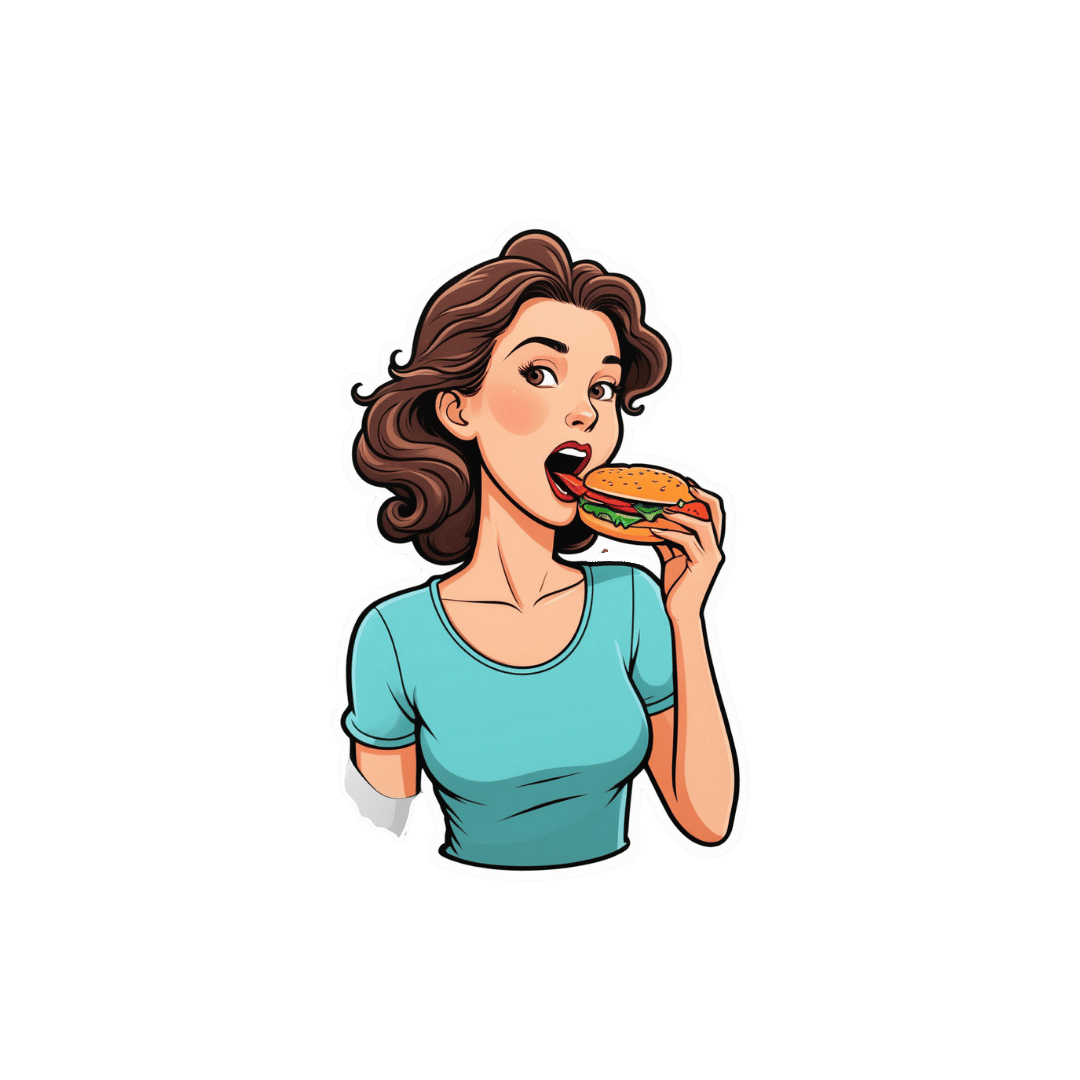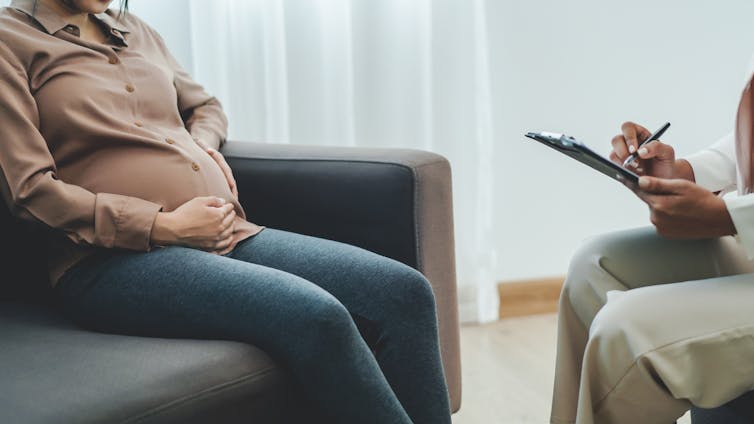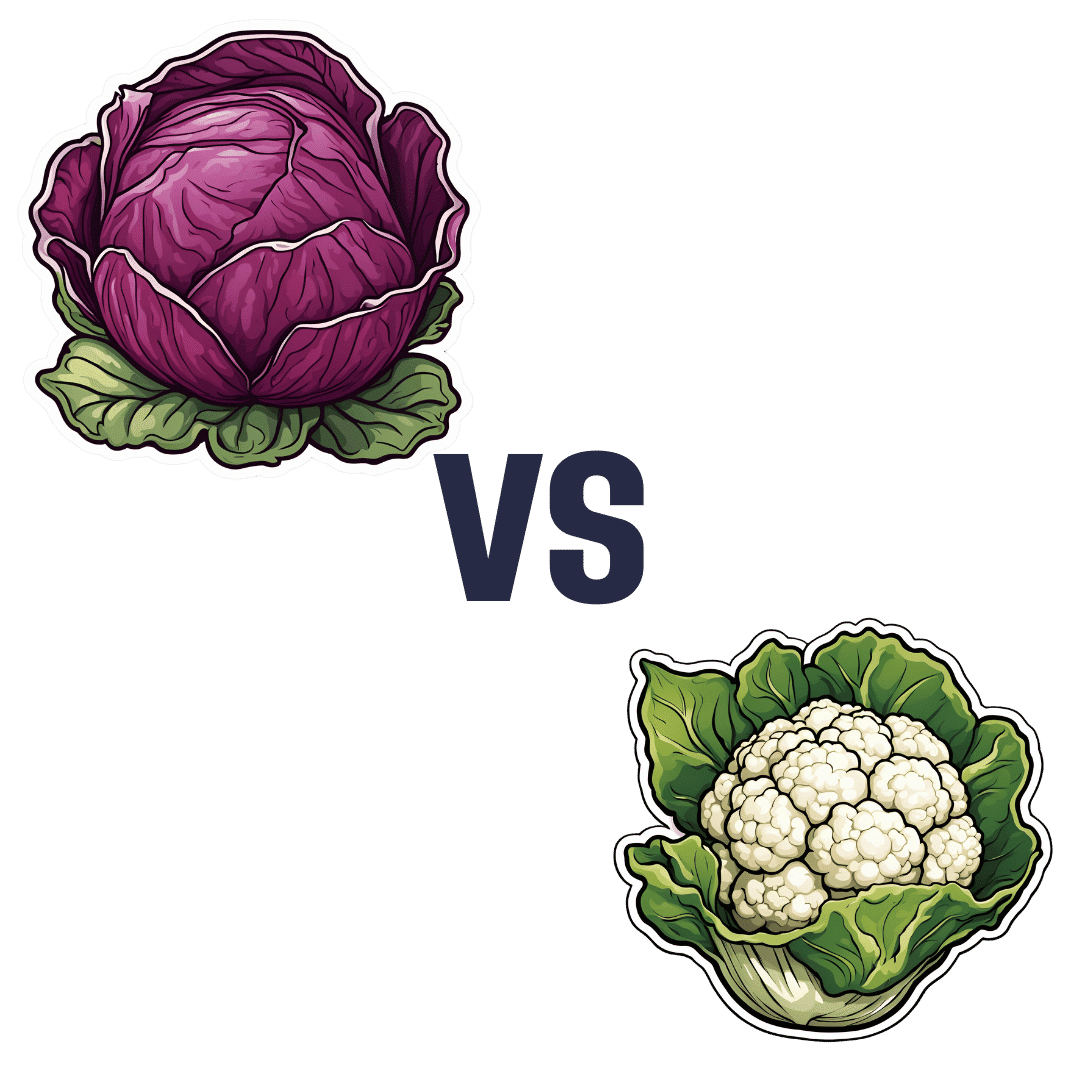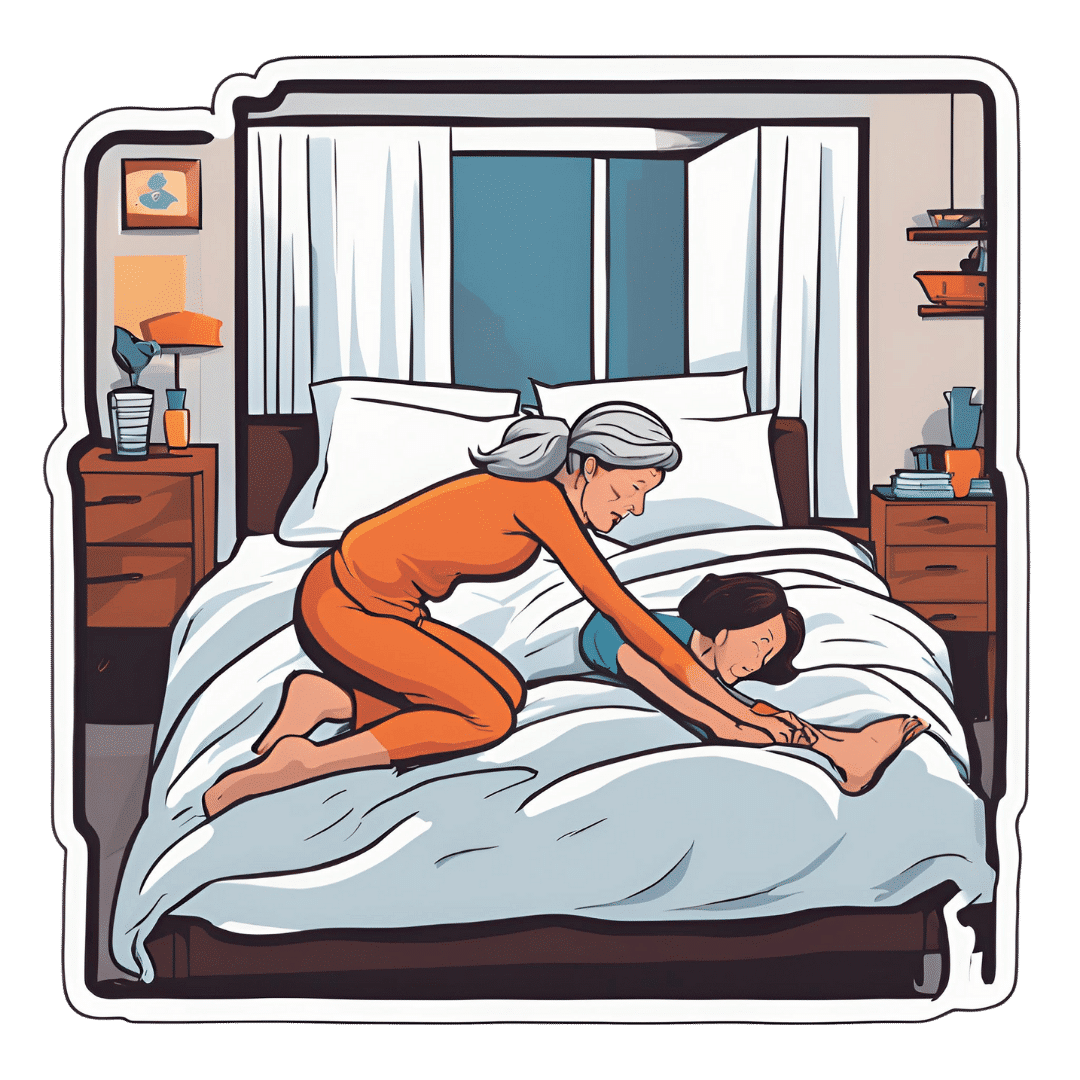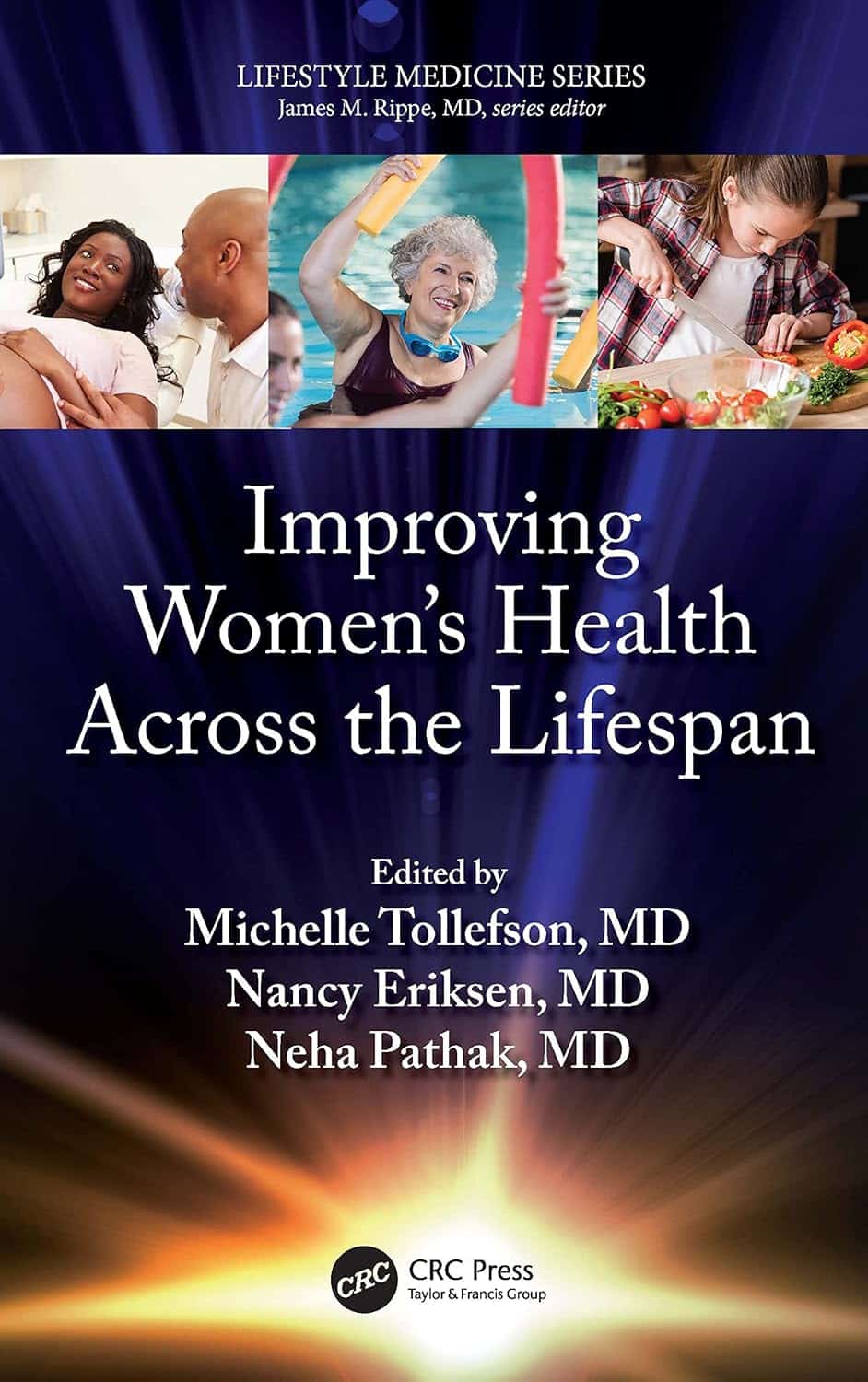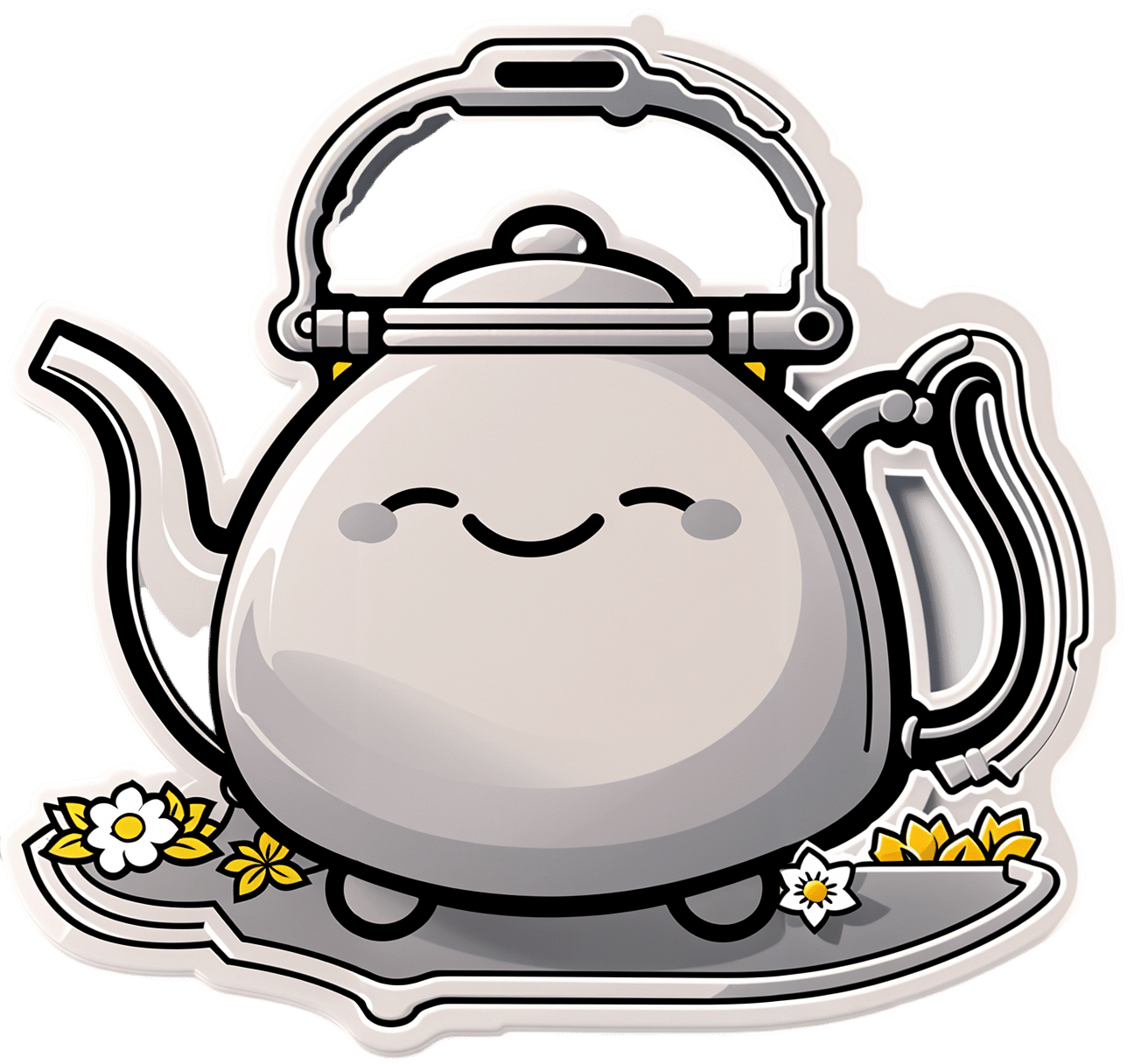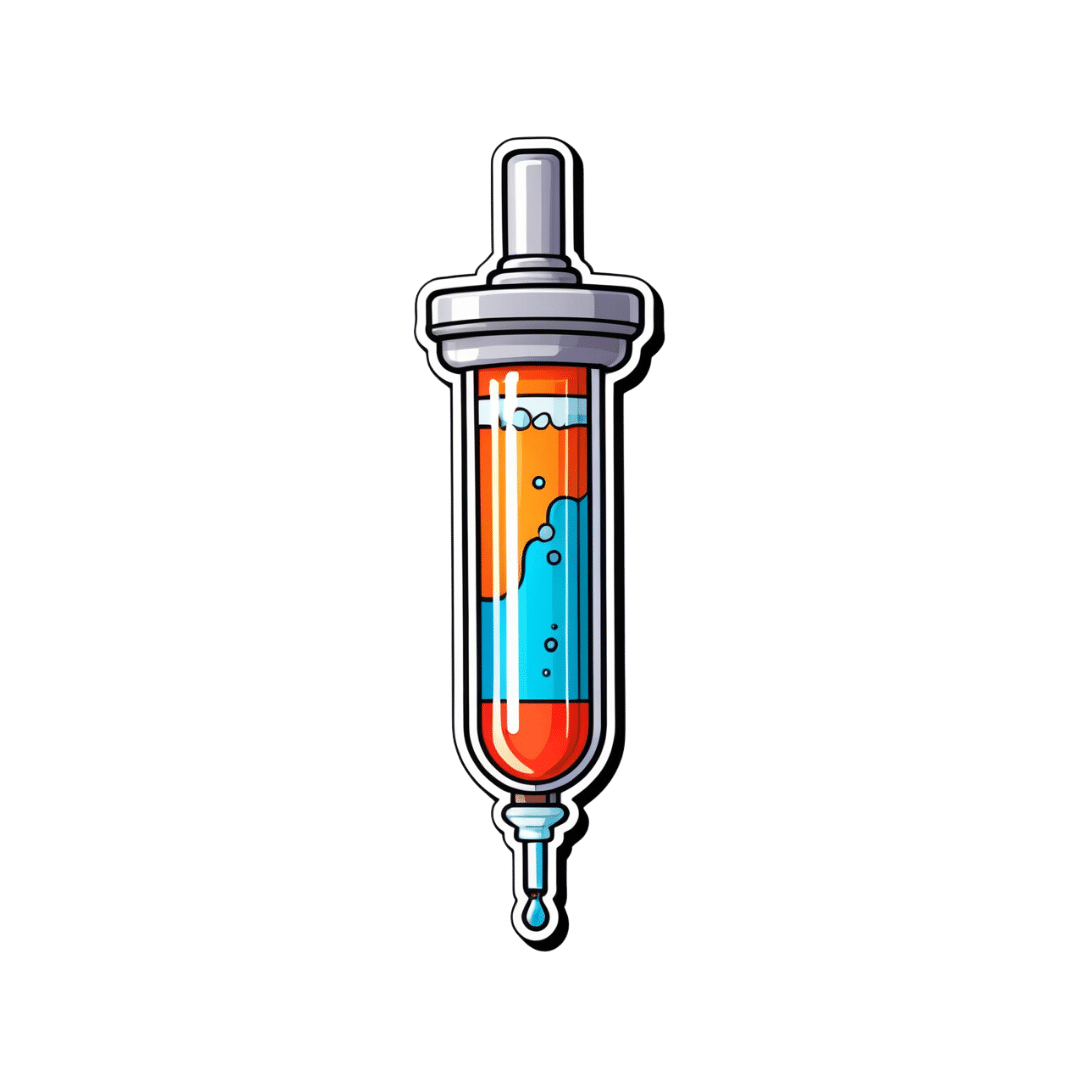
When should you get the updated COVID-19 vaccine?
10almonds is reader-supported. We may, at no cost to you, receive a portion of sales if you purchase a product through a link in this article.
Updated COVID-19 vaccines are now available: They’re meant to give you the best protection against the strain of the virus that is making people severely sick and also causing deaths.
Many people were infected during the persistent summer wave, which may leave you wondering when you should get the updated vaccine. The short answer is that it depends on when you last got infected or vaccinated and on your particular level of risk.
We heard from six experts—including medical doctors and epidemiologists—about when they recommend getting an updated vaccine. Read on to learn what they said. And to make it easy, check out the flowchart below.

If I was infected with COVID-19 this summer, when should I get the updated vaccine?
All the experts we spoke to agreed that if you were infected this summer, you should wait at least three months since you were infected to get vaccinated.
“Generally, an infection may be protective for about three months,” Dr. Ziyad Al-Aly, chief of research and development at the Veterans Affairs St. Louis Health Care System, tells PGN. “If they got infected three or more months ago, it is a good idea to get vaccinated sooner than later.”
This three-month rule applies if you got vaccinated over the summer, which may be the case for some immunocompromised people, adds Dr. Peter Chin-Hong, professor of medicine at the University of California, San Francisco.
If I didn’t get infected with COVID-19 this summer, when should I get vaccinated?
Most of the experts we talked to say that if you didn’t get infected with COVID-19 this summer, you should get the vaccine as soon as possible. Dr. Peter Hotez, dean of the National School of Tropical Medicine at Baylor College of Medicine, emphasizes that if this applies to you, you should get vaccinated as soon as possible, especially given the current COVID-19 surge.
Al-Aly agrees. “Vaccine-derived immunity lasts for several months, and it should cover the winter season. Plus, the current vaccine is a KP.2-adapted vaccine, so it will work most optimally against KP.2 and related subvariants [such as] KP.3 that are circulating now,” Al-Aly says. “We don’t know when the virus will mutate to a variant that is not compatible with the KP.2 vaccine.”
Al-Aly adds that if you’d rather take the protection you can get right now, “It may make more sense to get vaccinated sooner than later.”
This especially applies if you’re over 65 or immunocompromised and you haven’t received a COVID-19 vaccine in a year or more because, as Chin-Hong adds, “that is the group that is being hospitalized and disproportionately dying now.”
Some experts—including epidemiologist Katelyn Jetelina, author of newsletter Your Local Epidemiologist—also say that if you’re younger than 65 and not immunocompromised, you can consider waiting and aiming to get vaccinated before Halloween to get the best protection in the winter, when we’re likely to experience another wave because of the colder weather, gathering indoors, and the holidays.
“I am more worried about the winter than the summer, so I would think of October (some time before Halloween) as the ‘Goldilocks moment’—not too early, not too late, but just right,” Chin-Hong adds. Time it “such that your antibodies peak during the winter when COVID-19 cases are expected to exceed what we are seeing this summer.”
My children are starting school—should I get them vaccinated now?
According to most experts we spoke to, now is a good time to get your children vaccinated.
Jennifer Nuzzo, professor of epidemiology and director of the Pandemic Center at the Brown University School of Public Health, adds that “with COVID-19 infection levels as high as they are and increased exposures in school,” now is a particularly good time to get an updated vaccine if people haven’t gotten COVID-19 recently.
Additionally, respiratory viruses spike when kids are back in school, so “doing everything you can to reduce your child’s risk of infection can help protect families and communities,” says epidemiologist Jessica Malaty Rivera, science communications advisor at the de Beaumont Foundation.
For more information, talk to your health care provider.
(Disclosure: The de Beaumont Foundation is a partner of The Public Good Projects, the organization that owns Public Good News.)
This article first appeared on Public Good News and is republished here under a Creative Commons license.
Don’t Forget…
Did you arrive here from our newsletter? Don’t forget to return to the email to continue learning!
Recommended
Learn to Age Gracefully
Join the 98k+ American women taking control of their health & aging with our 100% free (and fun!) daily emails:
-
Eating disorders don’t just affect teen girls. The risk may go up around pregnancy and menopause too
10almonds is reader-supported. We may, at no cost to you, receive a portion of sales if you purchase a product through a link in this article.
Eating disorders impact more than 1.1 million people in Australia, representing 4.5% of the population. These disorders include binge eating disorder, bulimia nervosa, and anorexia nervosa.
Meanwhile, more than 4.1 million people (18.9%) are affected by body dissatisfaction, a major risk factor for some types of eating disorders.
But what image comes to mind first when you think of someone with an eating disorder or body image concerns? Is it a teenage girl? If so, you’re definitely not alone. This is often the image we see in popular media.
Eating disorders and body image concerns are most common in teenage girls, but their prevalence in adults, particularly in women, aged in their 30s, 40s and 50s, is actually close behind.
So what might be going on with girls and women in these particular age groups to create this heightened risk?
Drazen Zigic/Shutterstock The 3 ‘P’s
We can consider women’s risk periods for body image issues and eating disorders as the three “P”s: puberty (teenagers), pregnancy (30s) and perimenopause and menopause (40s, 50s).
A recent report from The Butterfly Foundation showed the three highest prevalence groups for body image concerns are teenage girls aged 15–17 (39.9%), women aged 55–64 (35.7%) and women aged 35–44 (32.6%).
We acknowledge there’s a wide age range for when girls and women will go through these phases of life. For example, a small proportion of women will experience premature menopause before 40, and not all women will become pregnant.
Variations in the way eating disorder symptoms are measured across different studies can make it difficult to draw direct comparisons, but here’s a snapshot of what the evidence tells us.
Puberty
In a review of studies looking at children aged six to adolescents aged 18, 30% of girls in this age group reported disordered eating, compared to 17% of boys. Rates of disordered eating were higher as children got older.
Pregnancy
During pregnancy, eating disorder prevalence is estimated at 7.5%. Almost 70% of women are dissatisfied with their body weight and figure in the post-partum period.
Pregnancy can represent a major change in identity and self-perception. Pormezz/Shutterstock Perimenopause
It’s estimated more than 73% of midlife women aged 42–52 are unsatisfied with their body weight. However, only a portion of these women would have been going through the menopause transition at the time of this study.
The prevalence of eating disorders is around 3.5% in women over 40 and 1–2% in men at the same stage.
So what’s going on?
Although we’re not sure of the exact mechanisms underlying eating disorder and body dissatisfaction risk during the three “P”s, it’s likely a combination of factors are at play.
These life stages involve significant reproductive hormonal changes (for example, fluctuations in oestrogen and progesterone) which can lead to increases in appetite or binge eating and changes in body composition. These changes can result in concerns about body weight and shape.
These stages can also represent a major change in identity and self-perception. A girl going through puberty may be concerned about turning into an “adult woman” and changes in attitudes of those around her, such as unwanted sexual attention.
Pregnancy obviously comes with significant body size and shape changes. Pregnant women may also feel their body is no longer their own.
While social pressures to be thin can stop during pregnancy, social expectations arguably return after birth, demanding women “bounce back” to their pre-pregnancy shape and size quickly.
Women going through menopause commonly express concerns about a loss of identity. In combination with changes in body composition and a perception their appearance is departing from youthful beauty ideals, this can intensify body dissatisfaction and increase the risk of eating disorders.
These periods of life can each also be incredibly stressful, both physically and psychologically.
For example, a girl going through puberty may be facing more adult responsibilities and stress at school. A pregnant woman could be taking care of a family while balancing work and other demands. A woman going through menopause could potentially be taking care of multiple generations (teenage children, ageing parents) while navigating the complexities of mid-life.
Research has shown interpersonal problems and stressors can increase the risk of eating disorders.
Body image concerns and eating disorders are not limited to teenage girls. transly/Unsplash, CC BY We need to do better
Unfortunately most of the policy and research attention currently seems to be focused on preventing and treating eating disorders in adolescents rather than adults. There also appears to be a lack of understanding among health professionals about these issues in older women.
In research I (Gemma) led with women who had experienced an eating disorder during menopause, participants expressed frustration with the lack of services that catered to people facing an eating disorder during this life stage. Participants also commonly said health professionals lacked education and training about eating disorders during menopause.
We need to increase awareness among health professionals and the general public about the fact eating disorders and body image concerns can affect women of any age – not just teenage girls. This will hopefully empower more women to seek help without stigma, and enable better support and treatment.
Jaycee Fuller from Bond University contributed to this article.
If this article has raised issues for you, or if you’re concerned about someone you know, call Lifeline on 13 11 14. For concerns around eating disorders or body image visit the Butterfly Foundation website or call the national helpline on 1800 33 4673.
Gemma Sharp, Professor, NHMRC Emerging Leadership Fellow & Senior Clinical Psychologist, The University of Queensland; Amy Burton, Lecturer in Clinical Psychology, University of Technology Sydney, and Megan Lee, Assistant Professor, Psychology, Bond University
This article is republished from The Conversation under a Creative Commons license. Read the original article.
Share This Post
-
What is AuDHD? 5 important things to know when someone has both autism and ADHD
10almonds is reader-supported. We may, at no cost to you, receive a portion of sales if you purchase a product through a link in this article.
You may have seen some new ways to describe when someone is autistic and also has attention-deficit hyperactivity disorder (ADHD). The terms “AuDHD” or sometimes “AutiADHD” are being used on social media, with people describing what they experience or have seen as clinicians.
It might seem surprising these two conditions can co-occur, as some traits appear to be almost opposite. For example, autistic folks usually have fixed routines and prefer things to stay the same, whereas people with ADHD usually get bored with routines and like spontaneity and novelty.
But these two conditions frequently overlap and the combination of diagnoses can result in some unique needs. Here are five important things to know about AuDHD.
Kosro/Shutterstock 1. Having both wasn’t possible a decade ago
Only in the past decade have autism and ADHD been able to be diagnosed together. Until 2013, the Diagnostic and Statistical Manual of Mental Disorders (DSM) – the reference used by health workers around the world for definitions of psychological diagnoses – did not allow for ADHD to be diagnosed in an autistic person.
The manual’s fifth edition was the first to allow for both diagnoses in the same person. So, folks diagnosed and treated prior to 2013, as well as much of the research, usually did not consider AuDHD. Instead, children and adults may have been “assigned” to whichever condition seemed most prominent or to be having the greater impact on everyday life.
2. AuDHD is more common than you might think
Around 1% to 4% of the population are autistic.
They can find it difficult to navigate social situations and relationships, prefer consistent routines, find changes overwhelming and repetition soothing. They may have particular sensory sensitivities.
ADHD occurs in around 5–8% of children and adolescents and 2–6% of adults. Characteristics can include difficulties with focusing attention in a flexible way, resulting in procrastination, distraction and disorganisation. People with ADHD can have high levels of activity and impulsivity.
Studies suggest around 40% of those with ADHD also meet diagnostic criteria for autism and vice versa. The co-occurrence of having features or traits of one condition (but not meeting the full diagnostic criteria) when you have the other, is even more common and may be closer to around 80%. So a substantial proportion of those with autism or ADHD who don’t meet full criteria for the other condition, will likely have some traits.
3. Opposing traits can be distressing
Autistic people generally prefer order, while ADHDers often struggle to keep things organised. Autistic people usually prefer to do one thing at a time; people with ADHD are often multitasking and have many things on the go. When someone has both conditions, the conflicting traits can result in an internal struggle.
For example, it can be upsetting when you need your things organised in a particular way but ADHD traits result in difficulty consistently doing this. There can be periods of being organised (when autistic traits lead) followed by periods of disorganisation (when ADHD traits dominate) and feelings of distress at not being able to maintain organisation.
There can be eventual boredom with the same routines or activities, but upset and anxiety when attempting to transition to something new.
Autistic special interests (which are often all-consuming, longstanding and prioritised over social contact), may not last as long in AuDHD, or be more like those seen in ADHD (an intense deep dive into a new interest that can quickly burn out).
Autism can result in quickly being overstimulated by sensory input from the environment such as noises, lighting and smells. ADHD is linked with an understimulated brain, where intense pressure, novelty and excitement can be needed to function optimally.
For some people the conflicting traits may result in a balance where people can find a middle ground (for example, their house appears tidy but the cupboards are a little bit messy).
There isn’t much research yet into the lived experience of this “trait conflict” in AuDHD, but there are clinical observations.
4. Mental health and other difficulties are more frequent
Our research on mental health in children with autism, ADHD or AuDHD shows children with AuDHD have higher levels of mental health difficulites than autism or ADHD alone.
This is a consistent finding with studies showing higher mental health difficulties such as depression and anxiety in AuDHD. There are also more difficulties with day-to-day functioning in AuDHD than either condition alone.
So there is an additive effect in AuDHD of having the executive foundation difficulties found in both autism and ADHD. These difficulties relate to how we plan and organise, pay attention and control impulses. When we struggle with these it can greatly impact daily life.
5. Getting the right treatment is important
ADHD medication treatments are evidence-based and effective. Studies suggest medication treatment for ADHD in autistic people similarly helps improve ADHD symptoms. But ADHD medications won’t reduce autistic traits and other support may be needed.
Non-pharmacological treatments such as psychological or occupational therapy are less researched in AuDHD but likely to be helpful. Evidence-based treatments include psychoeducation and psychological therapy. This might include understanding one’s strengths, how traits can impact the person, and learning what support and adjustments are needed to help them function at their best. Parents and carers also need support.
The combination and order of support will likely depend on the person’s current functioning and particular needs. https://www.youtube.com/embed/pMx1DnSn-eg?wmode=transparent&start=0 ‘Up until recently … if you had one, you couldn’t have the other.’
Do you relate?
Studies suggest people may still not be identified with both conditions when they co-occur. A person in that situation might feel misunderstood or that they can’t fully relate to others with a singular autism and ADHD diagnosis and something else is going on for them.
It is important if you have autism or ADHD that the other is considered, so the right support can be provided.
If only one piece of the puzzle is known, the person will likely have unexplained difficulties despite treatment. If you have autism or ADHD and are unsure if you might have AuDHD consider discussing this with your health professional.
Tamara May, Psychologist and Research Associate in the Department of Paediatrics, Monash University
This article is republished from The Conversation under a Creative Commons license. Read the original article.
Share This Post
-
Red Cabbage vs Cauliflower – Which is Healthier?
10almonds is reader-supported. We may, at no cost to you, receive a portion of sales if you purchase a product through a link in this article.
Our Verdict
When comparing red cabbage to cauliflower, we picked the cabbage.
Why?
In terms of macros, there’s no meaningful difference between them; they’re both mostly water with just enough fiber to hold them together, a small amount of carbs, and an even more trivial amount of protein. So, a tie on macros.
Looking at the vitamins, red cabbage has more of vitamins A, B1, B2, B6, C, E, and K, while cauliflower has more of vitamins B3, B5, B9, and choline. So, a 7:4 win for red cabbage.
In the category of minerals, red cabbage has more calcium, manganese, and iron, while cauliflower has more copper, phosphorus, and potassium. The margins of difference are comparable too, thus, a 3:3 tie on minerals.
It’s always worth taking a look at polyphenols for plants like these, but in this case, once again, there’s not much to set one above the other. However, it’s good to note also that despite them both being Brassica oleracea (same species, different cultivar), there isn’t much overlap in their polyphenol content, meaning they complement each other very well. In particular, red cabbage is a source of luteolin and quercetin, while cauliflower is a source of gallic acid and caffeic acid, for example.
Adding up the three ties and the one win for red cabbage, gives the cabbage the victory today—but do enjoy either or both; diversity is good!
Want to learn more?
You might like to read:
21 Most Beneficial Polyphenols & What Foods Have Them
Enjoy!
Share This Post
Related Posts
-
Over 50? Do These 3 Stretches Every Morning To Avoid Pain
10almonds is reader-supported. We may, at no cost to you, receive a portion of sales if you purchase a product through a link in this article.
Will Harlow, over-50s specialist physiotherapist, recommends these three stretches be done daily for cumulative benefits over time, especially if you have arthritis, stiff joints, or similar morning pain:
The good-morning routine
These stretches are designed for people with arthritis and stiff joints, but if you experience any extra pain, or are aware of having some musculoskeletal irregularity, do seek professional advice (such as from a local physiotherapist). Otherwise, the three stretches he recommends are:
Quad hip flexor stretch
This one is performed while lying on your side in bed:
- Bring the top leg up toward your body, grab the shin, and pull the leg backward to stretch.
- Feel the stretch in the front of the leg (quadriceps and hip flexor).
- Hold for 30 seconds and repeat on both sides.
- Use a towel or band if you can’t reach your shin.
Book-opener
This one helps improve mobility in the lower and mid-back:
- Lie on your side with arms at a 90-degree angle in front of your body.
- Roll backward, opening the top arm while keeping legs in place.
- Hold for 20–30 seconds or repeat the movement several times.
- Optionally, allow your head to rotate for a neck stretch.
Calf stretch with chest-opener
This one combines a calf and chest stretch:
- Stand in a lunged position, keeping the back leg straight and heel down for the calf stretch.
- Place hands behind your head, open elbows, and lift your head slightly for a chest stretch.
- Hold for 20–30 seconds, then switch legs.
For more on all the above plus visual demonstrations, enjoy:
Click Here If The Embedded Video Doesn’t Load Automatically!
Want to learn more?
You might also like:
Take care!
Don’t Forget…
Did you arrive here from our newsletter? Don’t forget to return to the email to continue learning!
Learn to Age Gracefully
Join the 98k+ American women taking control of their health & aging with our 100% free (and fun!) daily emails:
-
Improving Women’s Health Across the Lifespan – by Dr. Michelle Tollefson et al.
10almonds is reader-supported. We may, at no cost to you, receive a portion of sales if you purchase a product through a link in this article.
We say “et al.”, because this hefty book (504 pages) is a compilation of contributions by about 60 authors, of whom, 100% are doctors and about 90% are women.
As one might expect from a book with many small self-contained chapters by such a lot of doctors, the content is very diverse, though the style is consistent throughout, likely due to the authors working from a style sheet, plus the work of the editorial team.
About that content: the focus here is lifestyle medicine, and while much of the advice will go for men too (most people are unlikely to go wrong with “eat more fruits and vegetables and get better sleep” etc), anything more detailed than that (of which there’s a lot) is focussed on women. Hence, we get chapters on optimal nutrition for women, physical activity for women, sleep and women’s health, etc, as well as topics that can affect everyone but disproportionately affect women—ranging from autoimmune diseases to social burdens that affect health in measurable ways. There’s also, as you might expect, plenty about sexual health, pregnancy-related health, menopausal health, and so forth.
The strength of this book is really in its diversity; it’s very much a case of “60 heads are better than one”, and as such, we’re pretty much getting 60 books for the price of one here, as each author brings what they are most specialized in.
Bottom line: if you are a woman and/or love a woman, this book is packed with information that will be of interest and applicable use.
Click here to check out Improving Women’s Health Across The Lifespan, and do just that!
Don’t Forget…
Did you arrive here from our newsletter? Don’t forget to return to the email to continue learning!
Learn to Age Gracefully
Join the 98k+ American women taking control of their health & aging with our 100% free (and fun!) daily emails:
-
What Teas To Drink Before Bed (By Science!)
10almonds is reader-supported. We may, at no cost to you, receive a portion of sales if you purchase a product through a link in this article.
Which Sleepy Tea?
Herbal “tea” preparations (henceforth we will write it without the quotation marks, although these are not true teas) are popular for winding down at the end of a long day ready for a relaxing sleep.
Today we’ll look at the science for them! We’ll be brief for each, because we’ve selected five and have only so much room, but here goes:
Camomile
Simply put, it works and has plenty of good science for it. Here’s just one example:
❝Noteworthy, our meta-analysis showed a significant improvement in sleep quality after chamomile administration❞
Also this writer’s favourite relaxation drink!
(example on Amazon if you want some)
Lavender
We didn’t find robust science for its popularly-claimed sedative properties, but it does appear to be anxiolytic, and anxiety gets in the way of sleep, so while lavender may not be a sedative, it may calm a racing mind all the same, thus facilitating better sleep:
(example on Amazon if you want some)
Magnolia
Animal study for the mechanism:
Human study for “it is observed to help humans sleep better”:
As you can see from the title, its sedative properties weren’t the point of the study, but if you click through to read it, you can see that they found (and recorded) this benefit anyway
(example on Amazon if you want some)
Passionflower
There’s not a lot of evidence for this one, but there is some. Here’s a small study (n=41) that found:
❝Of six sleep-diary measures analysed, sleep quality showed a significantly better rating for passionflower compared with placebo (t(40) = 2.70, p < 0.01). These initial findings suggest that the consumption of a low dose of Passiflora incarnata, in the form of tea, yields short-term subjective sleep benefits for healthy adults with mild fluctuations in sleep quality.❞
So, that’s not exactly a huge body of evidence, but it is promising.
(example on Amazon if you want some)
Valerian
We’ll be honest, the science for this one is sloppy. It’s very rare to find Valerian tested by itself (or sold by itself; we had to dig a bit to find one for the Amazon link below), and that skews the results of science and renders any conclusions questionable.
And the studies that were done? Dubious methods, and inconclusive results:
Nevertheless, if you want to try it for yourself, you can do a case study (i.e., n=1 sample) if not a randomized controlled trial, and let us know how it goes 🙂
(example on Amazon if you want some)
Summary
- Valerian we really don’t have the science to say anything about it
- Passionflower has some nascent science for it, but not much
- Lavender is probably not soporific, but it is anxiolytic
- Magnolia almost certainly helps, but isn’t nearly so well-backed as…
- Camomile comes out on top, easily—by both sheer weight of evidence, and by clear conclusive uncontroversial results.
Enjoy!
Don’t Forget…
Did you arrive here from our newsletter? Don’t forget to return to the email to continue learning!
Learn to Age Gracefully
Join the 98k+ American women taking control of their health & aging with our 100% free (and fun!) daily emails:


